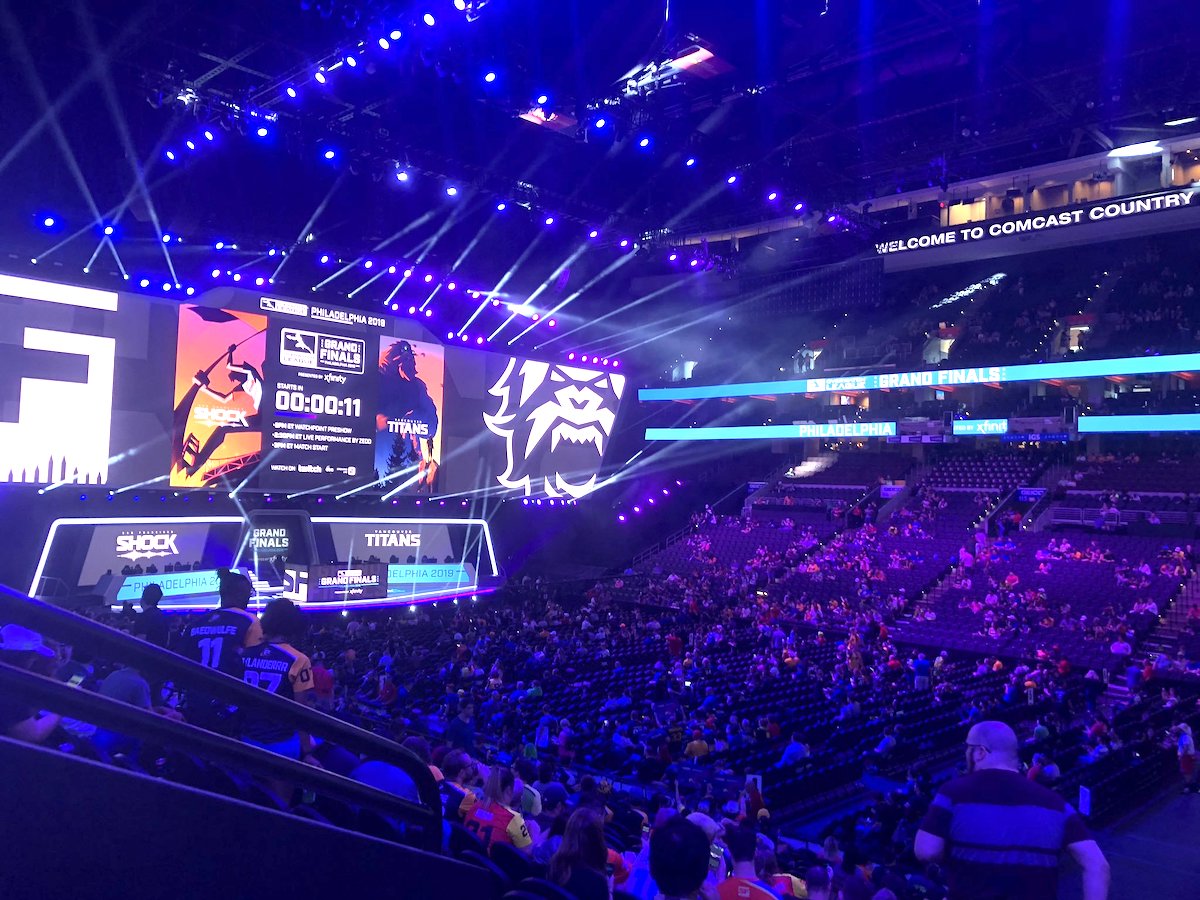The esports industry is quickly growing and is mostly made up of young players and fans, as tech and data lawyers Jason Ott and Derrick Maultsby explained during a talk at the University City Science Center’s weekly Venture Cafe Thursday night.
It’s what makes the field incredibly exciting for participants and investors, but also what makes it a breeding ground for potential legal issues.
“Innovation works fast,” Ott said, “and there’s a lot of issues to think about.”
As the Philadelphia area continues to grow as esports industry, and startups like Nerd Street Gamers — which just announced a planned opening of the West Coast’s largest esports venue — and venues like South Philly’s future Philadelphia Fusion Arena pop up, there are five main areas that people in the esports industry should be paying attention to:
- League structure
- Intellectual property
- Team formation
- Player contracts
- Endorsements and advertisements
“Anytime you have this much money flowing in a market, you’re going to have legal issues,” Ott said.
Formal leagues are still new, and people aren’t necessarily thinking of legalities, Maultsby added.
When it comes to these aspects of the industry, it’s best to fully consider all aspects and go over them with some legal council, the pair said. League structuring faces some unique challenges, and the pair pointed out the Overwatch League as an example of a league that took proper precautions, especially in requiring all players to be 18 or over and be able to travel internationally.
When it comes to intellectual property, there’s a few ways to get in trouble, including not getting permission from game developers or using content or characters without rights.
“It’s important that copyrights and trademarks are not being infringed upon,” Maultsby said.
Team formation can also be tricky, too. Like with any new venture, you’ll need to create a business plan, and consider financing options like venture capital or franchise agreements.
It’s the same with player contracts, Ott said. While becoming a pro esports player has a pretty different feel than working in an office, both positions require an understanding of an employee contract. These contracts should be thorough and outline everything from salary and bonus structures to requirements from the team and restrictions they may face.
Those permissions and restrictions come into play with endorsements and advertisements, Maultsby said. There’s a lot of legal considerations to navigate when considering what brands to work with and external contracts.
It’s not likely that esports or the various positions growing in the industry will slow down any time soon. But those working on building new teams or ventures should slow down. The overall message? Proceed cautiously.
“How many startups are heading into deals without legal representation because it’s pricey?” Maultsby said. “The esports market can be predatory.”
Join the conversation!
Find news, events, jobs and people who share your interests on Technical.ly's open community Slack

Philly daily roundup: East Market coworking; Temple's $2.5M engineering donation; WITS spring summit

Philly daily roundup: Jason Bannon leaves Ben Franklin; $26M for narcolepsy treatment; Philly Tech Calendar turns one

Philly daily roundup: Closed hospital into tech hub; Pew State of the City; PHL Open for Business


